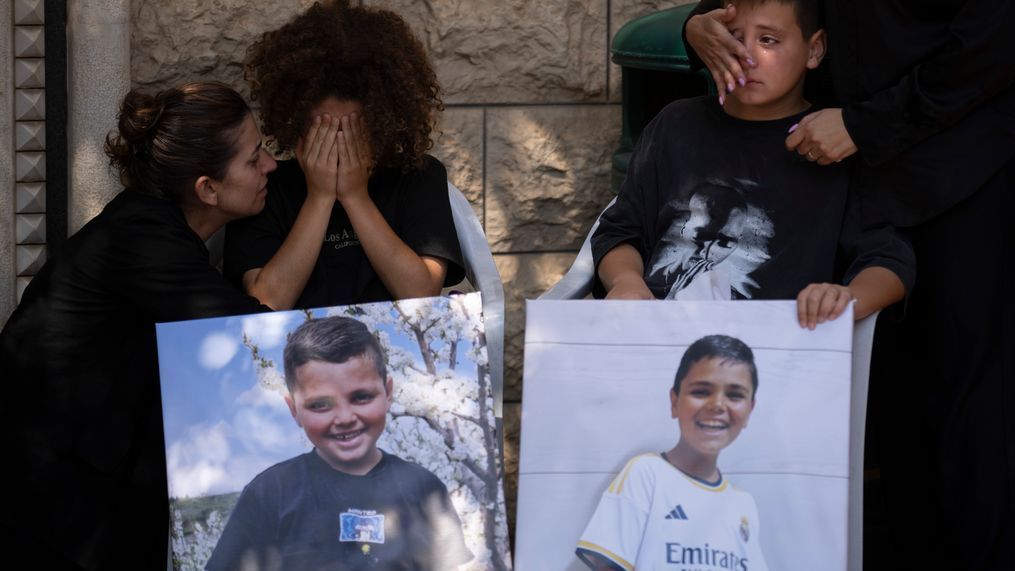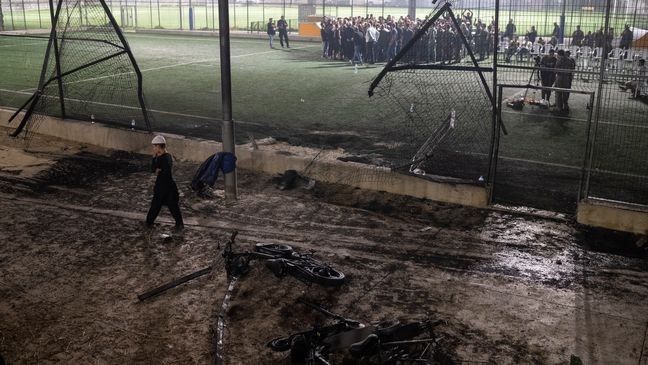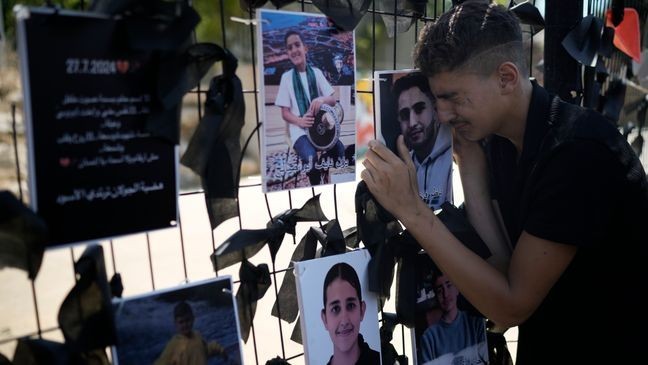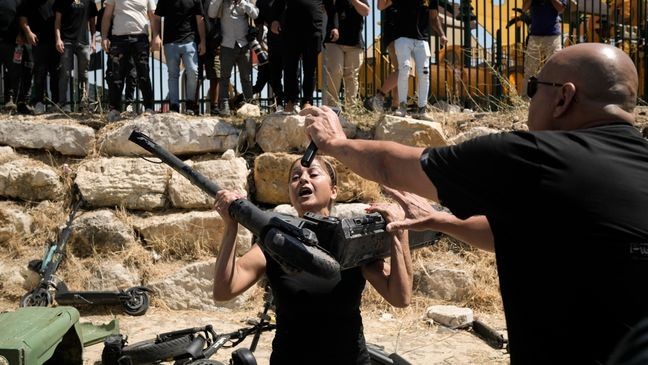Israel, Hezbollah run risk of full-blown war after rocket strike, something neither want
(TND) — Israel and Hezbollah run the risk of escalating their ongoing conflict following a rocket strike this weekend that killed children playing soccer in the Israeli-controlled Golan Heights.
Israel is already embroiled in the Gaza war against Hamas.
And even though Israel has the ability to carry out a new full-blown conflict against Lebanese Hezbollah, that doesn’t mean that’s the path either party wants.
RAND Middle East expert Raphael Cohen said Monday that he expects Israel’s retaliation for the rocket strike to be measured. Israel wants to get Hezbollah to back down without allowing the conflict to spiral out of control.
Israel has been fighting regularly with Hezbollah across its northern border with Lebanon since Hamas attacked Israel last fall.
Cohen said Hezbollah wants to make a show of supporting Hamas, another Iran-backed terrorist group. But the dynamics of the Hezbollah and Hamas conflicts with Israel “are very, very different.”
There's been an element of mutual deterrence between Israel and Hezbollah since the 2006 Lebanon War, he said.
Hezbollah leader Hassan Nasrallah cares about the people of southern Lebanon, despite being a terrorist movement, Cohen said.
“It doesn't want to turn southern Lebanon into what Gaza looks like,” Cohen said of Hezbollah’s home turf.
Hezbollah’s rocket arsenal is five to six times larger than Hamas’ arsenal. And Hezbollah’s fighters are more experienced, Cohen said.
In the event of an all-out war, Hezbollah has enough firepower to overwhelm Israel's missile defenses.
“It would be much bloodier and messier than what they face in the south (against Hamas), so both sides are sort of locked in this very deadly game of chicken that they don't want to be seen as backing down,” Cohen said. “But at the same time, they also really would prefer not to escalate, too.”
Both the U.S. and Israel are blaming Hezbollah for the rocket strike.
Hezbollah has denied responsibility.
“I don't particularly put a lot of faith in the denial,” Cohen said.
Multiple military bases are in the vicinity of the youth soccer field. Cohen said Hezbollah likely meant to fire a rocket but missed its target, and now Hezbollah is trying to wash its hands of the tragedy.
“Given the amount of ... fire being exchanged by both sides, eventually something is going to go wrong,” he said.
Gordon Gray, a former U.S. ambassador to Tunisia who is now teaching at the Elliott School of International Affairs at George Washington University, said the “rocket strike underscores the real danger that exists for miscalculation leading to tragic escalation.”
The U.S. doesn’t want to see a full-fledged war erupt between Israel and Hezbollah, either.
American citizens in both Israel and Lebanon could be caught in the crossfire.
A more intense war could tax American weapon stocks, with the U.S. vowing “ironclad and unwavering” support for Israel’s security.
And if combat were to “metastasize” beyond that area, there are risks to oil markets, vital sea lines and the significant presence of American troops in the region, Cohen said.
A wider war could also enflame jihadist tendencies against Israel, the U.S. and its allies, he said.



